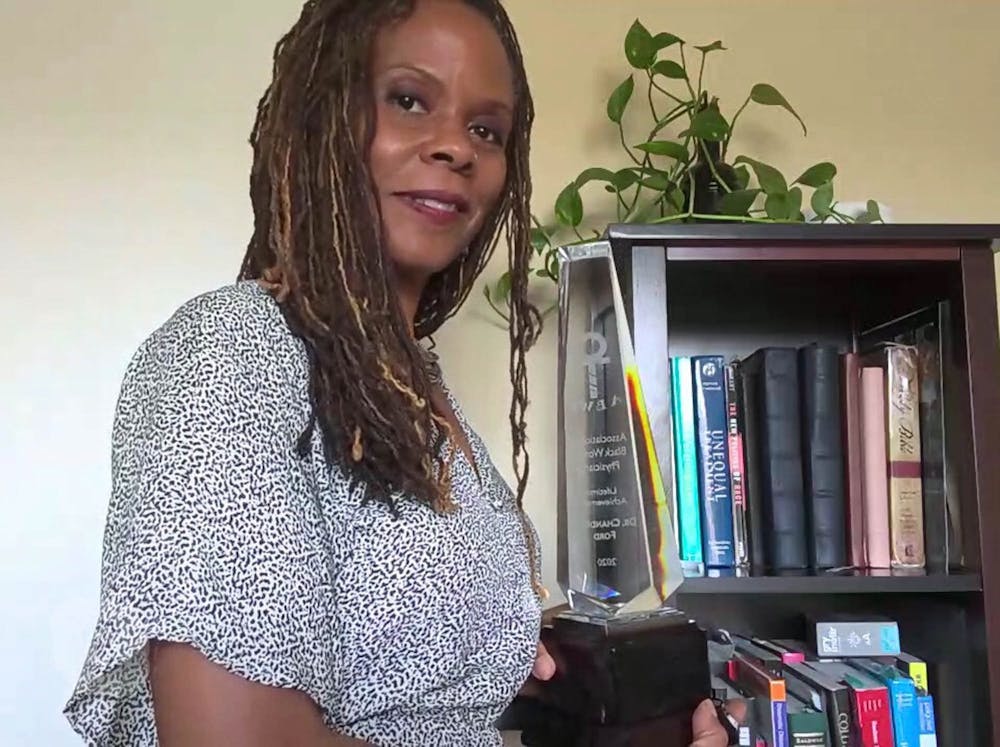“For research purposes, we should also think of ethnicity as having a second dimension,” Ford said. “And that is a dimension that tells us something about how society treats an ethnically-defined population.”
Nina Harawa is a member of the COVID-19 Task Force on Racism & Equity within the Center for the Study of Racism, Social Justice and Health at UCLA, of which Ford is the founding director.
“I think Chandra’s incredibly committed, very much a deep thinker, always operates with a high level of integrity,” Harawa said.
Bita Amani, co-chairperson of the COVID-19 Task Force on Racism & Equity, said Ford is fierce about her work.
“For the next generation of scholar activists or practitioners, we’re very lucky that Dr. Ford is in the field, because she’s going to be advocating for us for a very long time,” she said.
Joining forces with public health advocates
Ford said conceptual work is often not talked about as separate from empirical work in the public health field. She said examining and improving the tools to study racism also influenced why ABWP nominated her.
Ford's critical race theory work tries to make conceptual interventions when addressing how racism operates not only in society, but also within the healthcare system. She said that racism cannot be addressed without recognition in both the public health field and individual behavior, she said.
“No work that we do is ever free from the ways that racism operates,” she said. “Researchers do not conduct research in a vacuum; we conduct research in the same society where these disparities are happening.”
Ford said she joined forces with public health advocates to continue to push boundaries, as shown in “Racism: Science & Tools for the Public Health Professional” — a publication released 2019 that she co-edited.
Collins Airhihenbuwa, a collaborator on the publication, said he treasures Ford’s intellect and vision for how they bring racial equity and social justice to inform the research they do.
“You require someone who is patient, who cares about the issue, but who is willing to ask questions,” Airhihenbuwa said.
To get the day's news and headlines in your inbox each morning, sign up for our email newsletters.
Roots at UNC
Now a UCLA professor, Ford admitted that she never wanted to leave UNC when she graduated and that she planned to stay on as faculty.
“A number of my mentors around the country advised that it’s better after you finish a doctorate to take some time, go away and establish your own independent reputation,” she said. “Then your former faculty advisers and committee members can see, ‘Ah, she has become an independent scholar on her own right.’”
But even after all these years, she accredits Victor Schoenbach, a former associate professor emeritus of the Gillings School, for the way she walks through her life as a professor.
Schoenbach said he’s honored that Ford thinks of him as a mentor. He said they had met in his Fundamentals of Epidemiology class, and that her career post-UNC has been phenomenal.
“She’s become a leader,” Schoenbach said. “And it’s not over, I trust, which is a gift to all of us.”
Schoenbach shared emails sent between himself and Ford in 2014 regarding a National Institute of Health grant she had received. He said it gives an idea of who she is as a person.
“What terrific news – congratulations! You’re a star,” he wrote to her in the email exchange, tacking a smiley face at the end of his message.
“Oh Vic, thank you for the congratulations,” Ford wrote back. “Hmmm… I don’t want to be a star… I just want to honor my mother’s legacy by helping to leave a positive imprint during my lifetime on the lives of others. I know you know what I mean.”
“How about ‘you deserve a star?’” he asked.
“I would LOVE a little star!” she replied. “Thank you.”
@jenniferhtran_
university@dailytarheel.com




